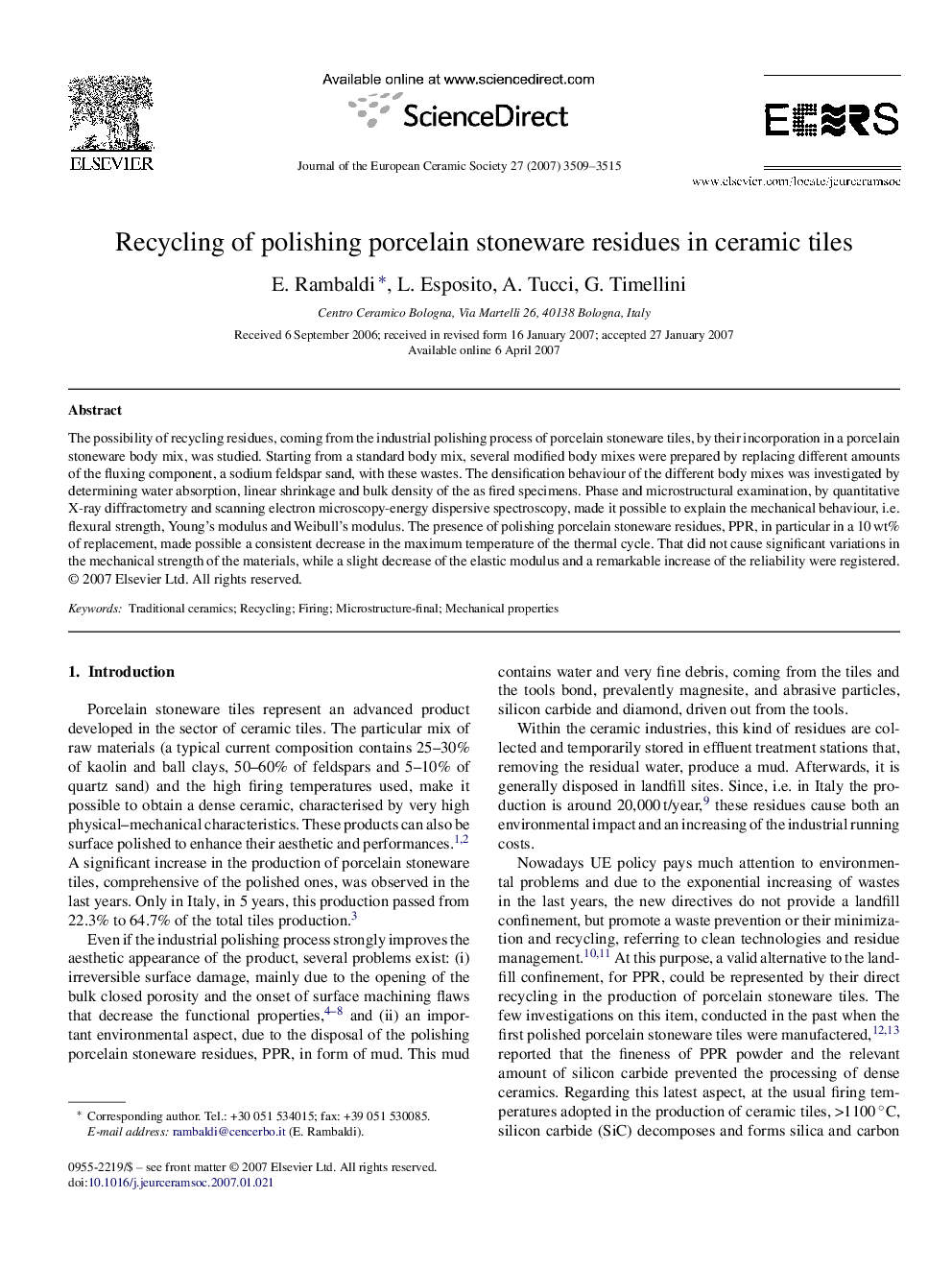| Article ID | Journal | Published Year | Pages | File Type |
|---|---|---|---|---|
| 1477047 | Journal of the European Ceramic Society | 2007 | 7 Pages |
The possibility of recycling residues, coming from the industrial polishing process of porcelain stoneware tiles, by their incorporation in a porcelain stoneware body mix, was studied. Starting from a standard body mix, several modified body mixes were prepared by replacing different amounts of the fluxing component, a sodium feldspar sand, with these wastes. The densification behaviour of the different body mixes was investigated by determining water absorption, linear shrinkage and bulk density of the as fired specimens. Phase and microstructural examination, by quantitative X-ray diffractometry and scanning electron microscopy-energy dispersive spectroscopy, made it possible to explain the mechanical behaviour, i.e. flexural strength, Young's modulus and Weibull's modulus. The presence of polishing porcelain stoneware residues, PPR, in particular in a 10 wt% of replacement, made possible a consistent decrease in the maximum temperature of the thermal cycle. That did not cause significant variations in the mechanical strength of the materials, while a slight decrease of the elastic modulus and a remarkable increase of the reliability were registered.
